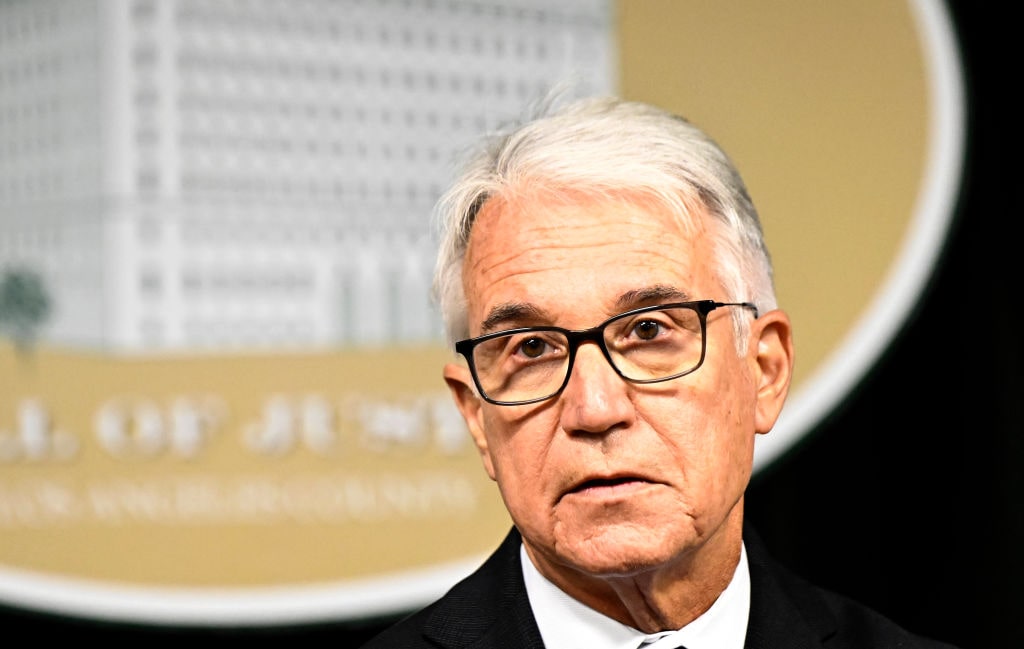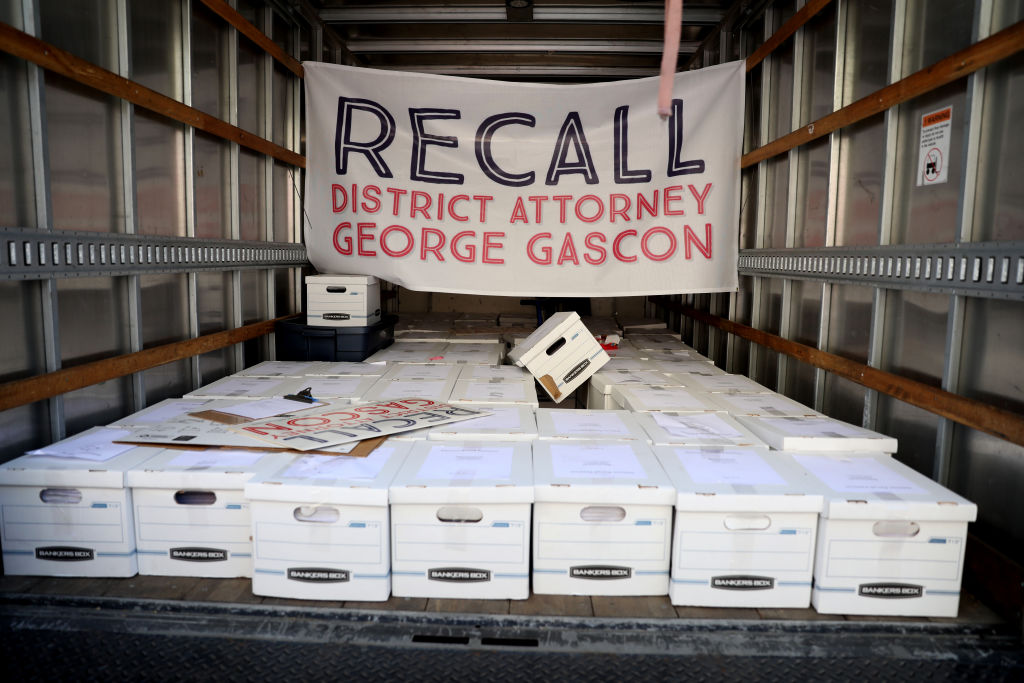
(Photo by Keith Birmingham/MediaNews Group/Pasadena Star-News via Getty Images)
The Recall George Gascón campaign claims it submitted 717,000 signatures to the Los Angeles County Registrar of Voters. If at least 566,857 of them are verified, Los Angeles voters will decide in November if their district attorney must suffer the same fate as San Francisco’s Chesa Boudin. Will he survive his own recall vote – or even avoid one entirely – or will he prove that Boudin was only the beginning?
The Grumble
 George Gascón, the former district attorney of San Francisco who now serves Los Angeles in the same capacity, is one of many progressive prosecutors – called rogues by those hoping to recall them – who sailed into office on a sea of campaign contributions from George Soros. The petitioners make several allegations on their Recall District Attorney George Gascón website.
George Gascón, the former district attorney of San Francisco who now serves Los Angeles in the same capacity, is one of many progressive prosecutors – called rogues by those hoping to recall them – who sailed into office on a sea of campaign contributions from George Soros. The petitioners make several allegations on their Recall District Attorney George Gascón website.
“As soon as he was sworn into office, District Attorney George Gaston began issuing directives to his prosecutors, instructing them to go soft on crime, coddle criminals, and trample upon the dignity and rights of crime victims,” it reads. Gascón is blamed for prohibiting prosecutors in the Golden State from requesting bail in most cases, forbidding prosecution for 13 offenses that used to be crimes, doing away with sentencing enhancements entirely, trying all minors as minors regardless of crime or how close they are to 18, and stopping any prosecutors from seeking the death penalty for any reason. He also evidently ordered prosecutors to stop attending parole hearings with victims or their families.
While the movement is led by Republicans, it isn’t just conservative voters and activists who want him out. In February, the 800-member Association of Deputy District Attorneys who work for the County of Los Angeles invited Gascón to address them to explain and defend his policies and provide arguments why he shouldn’t be recalled. Gascón ignored the request, and 97.9% of the front-line prosecutors responsible for implementing his policies voted for his recall. “This vote is by those who are intimately familiar with how Mr. Gascón’s policies actually play out on a day-to-day basis,” ADDA President Michele Hanisee said. “We believe the vote of our members will resonate with the voters of Los Angeles as they decide whether to recall Gascón from public office and restore public safety as the priority of the District Attorney’s office.”
A Numbers Game
The deadline for the recall petition was July 6, a deadline the petitioners met with signatures to spare – assuming enough of them are verified. According to the recall campaign, 717,000 signatures were submitted, which is 150,143 more than the 566,857 needed. Just shy of 80% must be verified as valid by the Los Angeles County Registrar of Voters. Ballotpedia examined 143 citizen-initiated measures from 2006 through 2010 and 2016 through 2018. Successful petition drives featured a signature validity rate of 75.33% on average, meaning this particular petition will need a slightly better than average amount of verified names.

(Gary Coronado / Los Angeles Times via Getty Images)
That said, California doesn’t verify 100% of the signatures – just a mere 5%, selected randomly. When San Francisco DA Chesa Boudin was recalled, the petition featured 83,487 signatures, which was just over 166% of the required 51,325. By contrast, the Gascón petition clocked in at just 126.5% of the minimum. Back to the Ballotpedia study for a moment: The average number of raw signatures submitted compared to the minimum required to be approved was 158.9%. As well, San Francisco only had 33,788 registered Republicans, meaning the majority of petition signers who led to the Boudin recall were, by process of elimination, non-GOP voters. The same can not be said for this newer campaign, as Los Angeles County’s 965,584 registered Republicans surpasses the total number of signers by a couple hundred thousand.
Still, the fact that just 2% of his own employees voted not to fire him certainly lends credibility to a claim of bipartisan ire. Essentially, it’s a numbers game – and despite what the statistical analysis of past petitions may or may not indicate, it is entirely possible that enough of the randomly selected signatures will verify to get this on the ballot in November.
Two Marks a Trend?
“Now, perhaps it sounds extreme, or like overreaction theater, to consider whether a single outcome, even in such a key race serving as a litmus test for an entirely outlying approach to law enforcement, could represent the beginning of the end of a movement,” Liberty Nation’s Tim Donner pointed out just a couple of days after Boudin’s recall. One outcome certainly can’t guarantee a trend – but every trend begins with one. As Tim – who predicted then that both the petition and eventual vote to recall Gascón would be successful – concluded, however, when that one successfully felled fellow is one of the faces of the movement, “that conclusion may soon look spot-on.”
Remember to check out the web’s best conservative news aggregator
Whatfinger.com — the #1 Alternative to the Drudge


